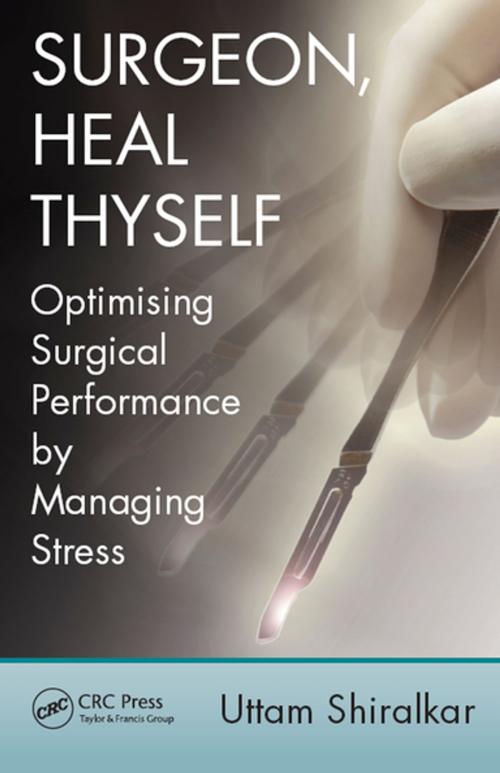Surgeon, Heal Thyself
Optimising Surgical Performance by Managing Stress
Nonfiction, Health & Well Being, Medical, Surgery| Author: | Uttam Shiralkar | ISBN: | 9781351668972 |
| Publisher: | CRC Press | Publication: | February 17, 2017 |
| Imprint: | CRC Press | Language: | English |
| Author: | Uttam Shiralkar |
| ISBN: | 9781351668972 |
| Publisher: | CRC Press |
| Publication: | February 17, 2017 |
| Imprint: | CRC Press |
| Language: | English |
Surgeons start their career in the expectation that it will bring personal satisfaction through an unparalleled sense of achievement and professional growth. Nonetheless, a career in surgery carries with it serious challenges: surgical training is rigorous, both emotionally and physically, and demands that the surgeon adjust to unpredictability. Chronic levels of stress can affect surgical performance, the quality of family relationships, and even the nature of the doctor–patient relationship. Unmanaged stress has been shown to contribute to physical illness, emotional problems, absenteeism, poor job performance, drug abuse, and negative social attitudes.
With a background in both surgery and psychological medicine, Dr Shiralkar examines the psychosocial burden of being a surgeon and offers insights into the role of intra-human factors in surgery. He reveals surgical performance from a psychological perspective and highlights the factors that cause unsatisfactory performance. He also offers solutions to rectify the problem and prevent burnout. The book will be invaluable to all those embarking on a surgical career, as well as to established surgeons in all specialties who wish to understand how to identify and manage the factors that could lead to career-limiting levels of stress.
Surgeons start their career in the expectation that it will bring personal satisfaction through an unparalleled sense of achievement and professional growth. Nonetheless, a career in surgery carries with it serious challenges: surgical training is rigorous, both emotionally and physically, and demands that the surgeon adjust to unpredictability. Chronic levels of stress can affect surgical performance, the quality of family relationships, and even the nature of the doctor–patient relationship. Unmanaged stress has been shown to contribute to physical illness, emotional problems, absenteeism, poor job performance, drug abuse, and negative social attitudes.
With a background in both surgery and psychological medicine, Dr Shiralkar examines the psychosocial burden of being a surgeon and offers insights into the role of intra-human factors in surgery. He reveals surgical performance from a psychological perspective and highlights the factors that cause unsatisfactory performance. He also offers solutions to rectify the problem and prevent burnout. The book will be invaluable to all those embarking on a surgical career, as well as to established surgeons in all specialties who wish to understand how to identify and manage the factors that could lead to career-limiting levels of stress.















